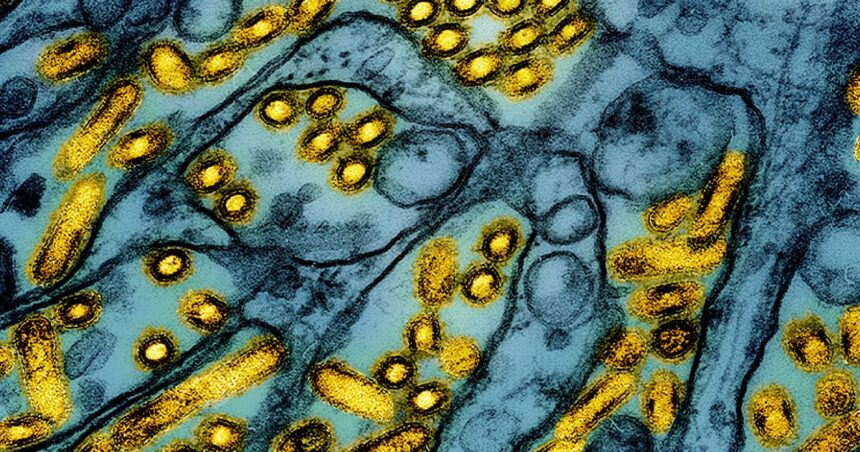A recent genetic analysis has revealed that the bird flu virus mutated inside a patient in Louisiana who contracted the first severe case of the illness in the United States. The U.S. Centers for Disease Control and Prevention reported that the mutations observed in the virus may enhance its ability to bind to receptors in the upper airways of humans, which is a cause for concern but not alarm.
Michael Osterholm, an infectious disease researcher at the University of Minnesota, compared this binding interaction to a lock and key mechanism. He explained that for the virus to enter a cell, it requires a key to unlock the door, and the recent mutations suggest that the virus may be developing a key that could potentially work.
However, Osterholm emphasized that this does not necessarily indicate that the virus is on the verge of becoming easily transmissible between people. He clarified that while the virus may have a key that fits the lock, it does not mean it can open the door to human-to-human transmission.
So far, the bird flu virus has been causing mild illnesses in individuals in the U.S., with most cases occurring among individuals who work on dairy or poultry farms. The Louisiana patient, who is over 65 years old and has underlying health issues, was hospitalized in critical condition after being exposed to sick and dead birds in a backyard flock.
The CDC has assured the public that there has been no known transmission of the virus from the Louisiana patient to others. Although the mutations in the virus are a cause for concern, the overall risk to the general public remains low.
Osterholm stressed the importance of monitoring these mutations closely, noting that there is a possibility of future influenza pandemics that could be more severe than the COVID-19 pandemic. He emphasized the need for continued vigilance in tracking the evolution of the virus to mitigate potential risks.
In conclusion, while the genetic analysis of the mutated bird flu virus raises concerns, it is crucial to stay informed and prepared for any developments. The health and science departments of The Associated Press receive support from the Howard Hughes Medical Institute’s Science and Educational Media Group, with the AP being solely responsible for all content.








